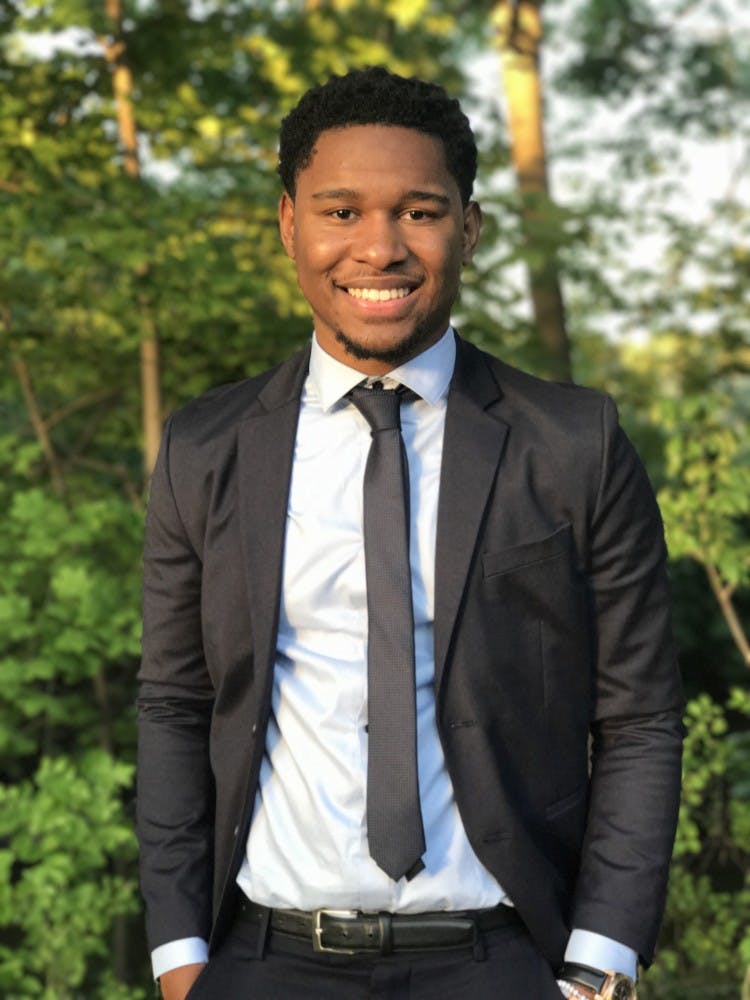There shouldn’t be any questions or debate on whether or not MSU promotes diversity on campus. The predominantly white institution welcomed the largest African-American freshman class this school year, more than any other Big Ten school.
Having said that, fair questions could be raised regarding if these black students – particularly black males – are being provided with the resources and support systems needed to not only help guide them through college, but help shape their professional careers.
While all students, regardless of race or ethnicity, are offered the same learning opportunities inside of the classroom here at MSU, the same can’t be said for learning environments outside of them. While MSU has over 800 registered student organizations including cultural organizations to assist minorities and women, such as Black Student Alliance and Successful Black Women, there is not one student organization on campus targeted specifically to black males.
Timothy Herd, an MSU junior and president of Rising Black Men, a newly-formed black male mentorship group at MSU, made efforts towards changing this unfortunate reality.
With Rising Black Men, Herd hopes to unite young, black underclassmen on campus through mentorship and create a sense of community amongst them.
“Some of the goals that I have are to create a support system, especially targeted towards the freshmen black males here on campus, with sophomores as well,” Herd said.
While the education major had pondered on the idea of implementing an organization tailored for young black men for a while – as far back as his sophomore year – Herd was inspired to ultimately start up this initiative after coming across discouraging statistics on opportunities offered to black males in K-12 and educational achievement amongst young black males in America.
According to the Policy Evaluation and Research Center, only 12 percent of black fourth grade boys are proficient in reading compared to 38 percent of white boys, and only 12 percent of black fourth grade boys are proficient in math compared to 44 percent of their white counterparts. Along those lines, black boys in low-income areas are statistically more likely to end up in prison than in college.
“Some of the statistics that I was reading and seeing was very frustrating for me, and I just felt like I was responsible to make a change,” Herd said.
Part of the reason why Herd felt he had a responsibility to create a black male mentorship group was because he said he was well equipped to do so.
“I have the resources and people on campus that can help me, I have people who are supporting me,” Herd said. “I think that if you have the resources then you should be a resource to others and not confine all of those resources to yourself.”
Along with receiving guidance and support from upperclassmen, mentees in Rising Black Men will have the opportunity to eventually serve as mentors themselves, as Herd said his long-term goal with the initiative is to provide a support system for young black males of all age groups in the Lansing area.
College freshmen and sophomores in Rising Black Men will go to high schools throughout Lansing once a week and mentor high school students in the program. These high school students will then mentor middle school students; middle school students will mentor elementary students and so on.
“My goal really is to create a pipeline from MSU to the Lansing community, from k-12 to post-secondary education here,” Herd said. “No matter what college they go to, they’ll still have mentors in these freshmen.”
Herd managed to get his organization up and running in just a matter of a few weeks despite the theoretically long process required to successfully implementing a registered student organization on campus.
Since he began to lay down the groundwork for Rising Black Men at the start of the semester, Herd has been able to recruit mentors and mentees, create a logo and t-shirts for the program – designed by MSU Intercultural Aide Linda Lay – and get the program officially signed as a registered student organization, which he said wasn’t as challenging as one might assume.
“It wasn’t too tedious after I had the mentors and mentees and a game plan of what I wanted to do,” Herd said.
While Herd has made great strides in such a short period of time in regards to starting up his organization, the program is still in the process of receiving funding. A process that includes Herd having to make a case to board committees on why and how Rising Black Men would be beneficial to potential members.
Regardless of whether funding groups see it or not, Herd believes his organization serves young black males in a variety of ways from providing emotional support, to assisting them in establishing relationships or connections for post-college job opportunities and helping them become better men.
“A man to every individual is different; my connotation of what a man is somebody who holds onto their word, is transparent, acknowledges mistakes and makes the best out of all situations” Herd said.
Support student media!
Please consider donating to The State News and help fund the future of journalism.
“I want to see more black males in leadership positions here on campus,” Herd said. “I just really want to give everybody, especially the black males, an opportunity to thrive.”
Discussion
Share and discuss “New mentorship program aims to help young black men at MSU” on social media.





